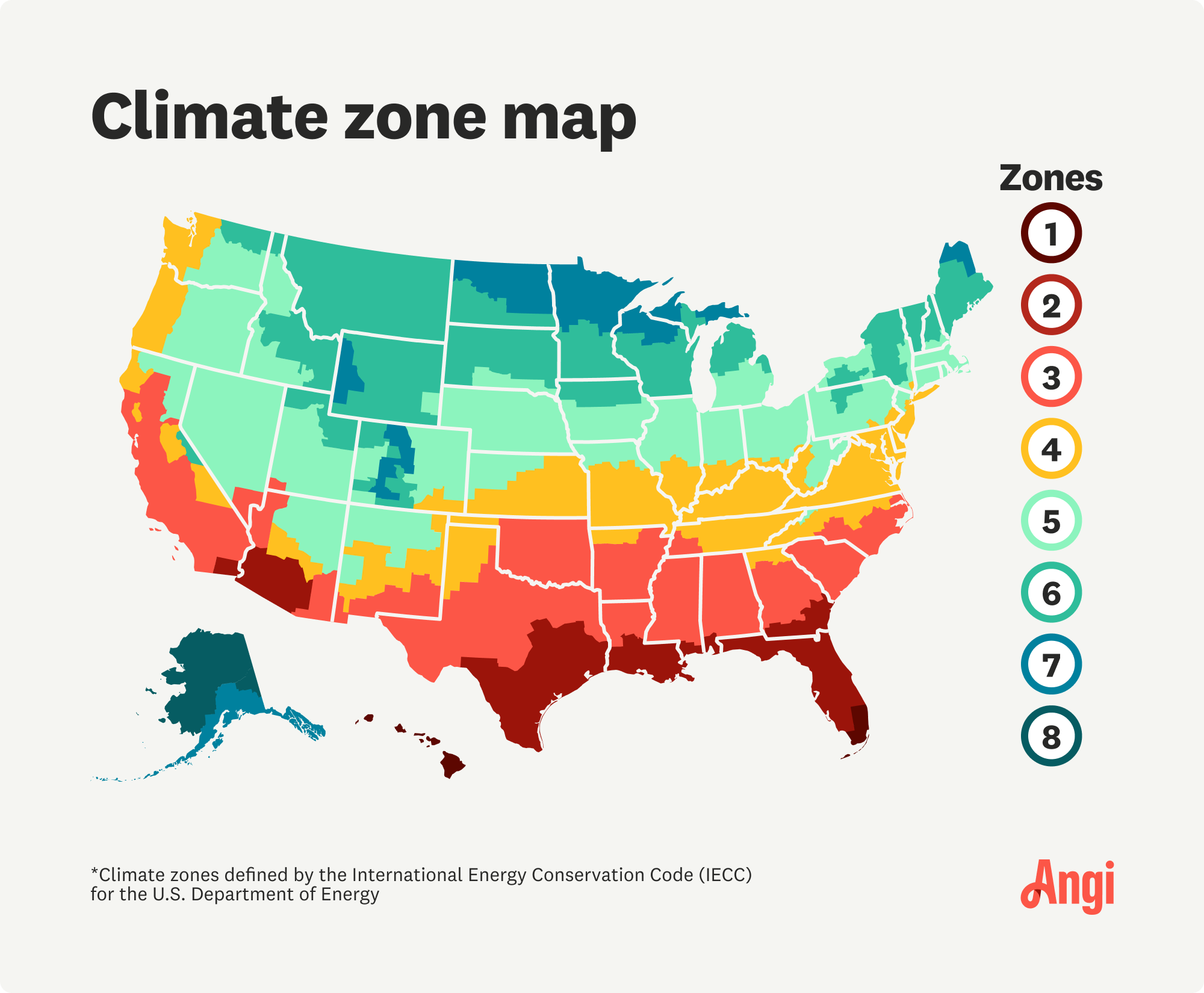
When your heat goes out, it can cause a bit of a panic. But knowledge is power, so let's go over radiator repair costs before that happens.
Heating and air conditioning service costs depend on your project and location. Check with a local pro for your specific job.
Boiler replacement costs in St. Louis, MO, depend on several factors, including boiler size, fuel type, and labor rates.
St. Louis homes need a boiler capacity of 45,000 to 75,000 BTUs.
Natural gas boilers are the most common in St. Louis, but you can also choose gas, electric, or wood systems.
Labor fees make up a large portion of your final bill, but HVAC pros can ensure a safe and efficient replacement job.
The cost of a boiler replacement in St. Louis averages $3,096, with the range often spanning between $2,282 and $4,725. St. Louis, MO, is no stranger to temperature swings, where the crisp autumn air can give way to the bitter chill of winter seemingly overnight. A reliable heating system is the best defense against the frigid temperatures, and this sometimes means a boiler replacement. Many factors can affect your final bill, including size, fuel type, boiler type, and more.
From fuel type to boiler size, here are the factors that influence the final cost of your boiler replacement in St. Louis, MO.
The median home size in St. Louis is 1,400 to 1,600 square feet. When considering the climate of Missouri, this would mean furnace capacity should be 45,000 to 75,000 BTUs.
You can estimate the cost of your boiler by your home’s square footage and boiler capacity using the table below. However, call an HVAC pro in St. Louis, MO, for the most accurate estimate.
| Home Size (in Square Feet) | Boiler Size in British Thermal Units (BTUs) | Average Unit Cost |
|---|---|---|
| 1,000 | 30,000–45,000 | $1,600–$4,200 |
| 1,500 | 45,000–68,000 | $1,900–$4,700 |
| 2,000 | 60,000–90,000 | $2,100–$5,200 |
| 2,500 | 75,000–113,000 | $2,600–$6,200 |
| 3,000 | 90,000–135,000 | $2,900–$7,200 |
The most common fuel used for boilers in St. Louis, MO, is natural gas The fuel type you choose will have a major impact on both your ongoing costs and how much you pay for a new boiler.
| Fuel Type | Cost |
|---|---|
| Oil | $3,800–$8,500 |
| Gas/propane | $3,500–$9,000 |
| Electric | $2,000–$7,500 |
| Wood | $4,800–$13,000 |
Oil boiler: Oil burns hotter than gas, so oil boilers provide more heat and are better in colder climates. However, oil boilers require more maintenance than gas options, so keep things like long-term maintenance costs in mind before buying.
Gas and propane boiler: Propane and natural gas are common options for heating homes. In addition to the unit price, installation costs $1,000 to $3,000 and requires new exhaust lines, drains, and fuel lines.
Electric: Electric boilers are highly efficient and don't require some of the components that gas and oil boilers need, like exhaust vents. They take a long time to heat up but are an attractive option for tiny homes in warm climates.
Wood: Large, outdoor, wood-fueled boilers are good options for rural areas that have easy access to wood.
Boilers are broken out by fuel type, but they can also vary in other ways—like their system types.
| Type | Cost | Pros | Cons |
|---|---|---|---|
| Standard | $1,600–$4,500 | Lower initial cost, easy maintenance | Less efficiency |
| Combination | $3,500–$7,500 | Quick heating | Limited output |
| System | $2,500–$6,000 | Easy installation, more efficient than other options | Larger size |
| High-efficiency | $4,000–$9,500 | Best energy efficiency | More expensive up front |
Standard or conventional boilers: These boilers work by quickly heating water in pipes and sending it to your taps. Standard units are one of the most popular choices for homeowners in large homes and those with floor heating systems.
Combination boilers: Combination boilers are popular because they’ll give you access to hot water quickly. However, the supply tends to be limited due to the lack of a storage tank.
System boilers: These work by keeping high-pressure hot water in a sealed cylinder, where it can be sent to multiple taps within your home simultaneously.
High-efficiency boilers: High-efficiency boilers are up to 98% efficient, which accounts for thousands of dollars in savings over the boiler's life. Standard boilers are around 80% efficient, making them ideal for cold climates.

The capacity of your boiler (in BTUs) depends on your region and climate. Warmer climates make it much easier to heat water, even for larger houses, so fewer BTUs are required. You can estimate your necessary BTUs by finding out which climate zone you live in.
In St. Louis, MO, labor costs for boiler replacement range from $1,500 to $4,000, but the exact rate depends on the complexity of the job. Factors like converting to a different fuel type, working in a hard-to-reach location, or rerouting pipes can increase the time and cost of labor.
The City of St. Louis also requires a mechanical permit for boiler replacement, which ensures the work meets local safety codes and building regulations. The permit fee is included in your contractor’s quote, and it’s often a few hundred dollars.
Boiler replacement is a dangerous job that carries a risk of electrical shock, gas leak, or other adverse outcomes. Because of this, it’s important to hire a reputable licensed HVAC contractor near you to do the job.
Replacing a boiler in St. Louis, MO, is considered a critical maintenance project instead of a value-adding renovation. That said, prospective buyers might find your home more attractive if it has an updated boiler—particularly an energy-efficient one—because they won’t have to worry about an expensive replacement after moving in. What’s more, an old or failing boiler might fail a home inspection, which can cause holdups when selling your home.
Home is the most important place on earth, which is why Angi has helped more than 150 million homeowners transform their houses into homes they adore. To help homeowners with their next project, Angi provides readers with the most accurate cost data and upholds strict editorial standards. We survey real Angi customers about their project costs to develop the pricing data you see, so you can make the best decisions for you and your home. We pair this data with research from reputable sources, including the U.S. Bureau of Labor Statistics, academic journals, market studies, and interviews with industry experts—all to ensure our prices reflect real-world projects.
Want to help us improve our cost data? Send us a recent project quote to [email protected]. Quotes and personal information will not be shared publicly.
From average costs to expert advice, get all the answers you need to get your job done.

When your heat goes out, it can cause a bit of a panic. But knowledge is power, so let's go over radiator repair costs before that happens.

What you’ll pay in Columbus, OH, for furnace repairs depends on many factors. Here’s a breakdown of what can go wrong and the cost to fix those issues.

Getting AC and furnace replacement done at the same time can lead to huge benefits for your wallet and your home. Here’s everything you need to know.

Tackling unwanted odors from indoor plants can be tricky. Learn how to use a carbon filter in your duct fan to improve air quality.

There are a few different types of refrigerant for AC systems, but some contain environmental hazards. Learn about the five main types of refrigerant.

When you notice hot and cold zones in your home, it pays to learn how to balance airflow in your ducts to even out the temperature.